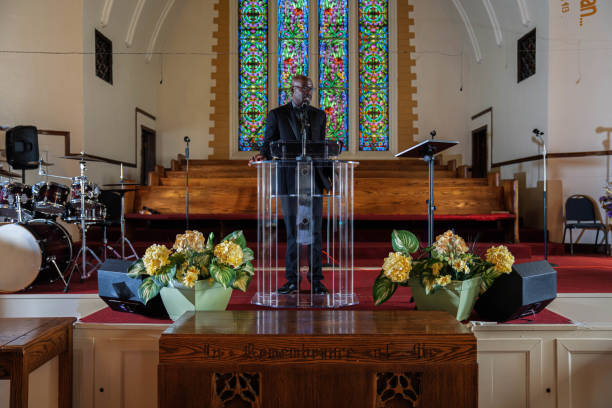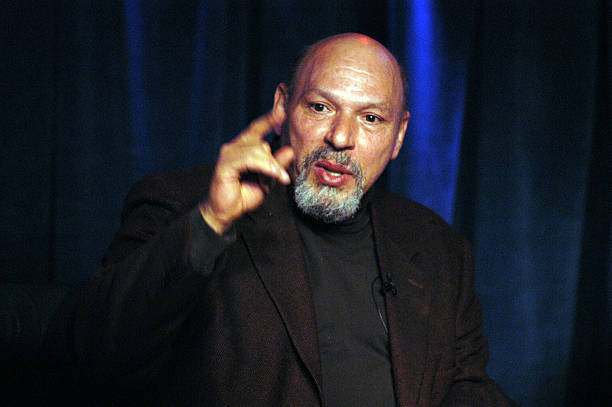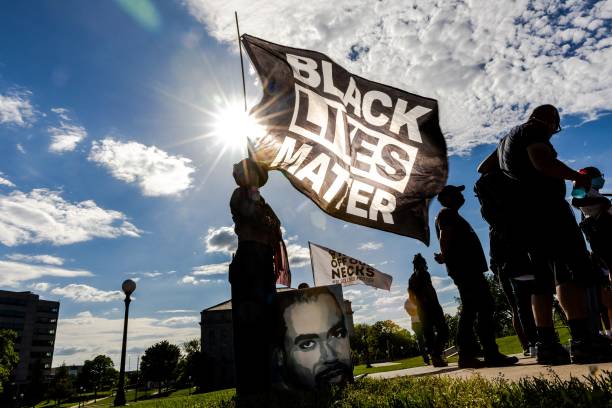(ThyBlackMan.com) Church hurt is a familiar topic for new and seasoned Christians. It is the hurt and pain caused by a member or the organization of the local church. It occurs in all churches regardless of faith, race, ethnicity, or denomination. It comes through enemies, friends, or even family members. It is so painful because these are people who you trusted, confided in, and established special relationships with.
How do you cope when the origins of your spiritual stress and distrust comes from the people of the church? How do you pick up the pieces after someone has trespassed against you? Is it best to leave your local church to find a new church home? Well, this article focuses on forgiveness after being hurt by people in church.
A place of refuge
A church is expected to be a safe place, a fortress; however, at times it may seem like a den of thieves filled with evil, uncaring people. No one goes to a church with the expectation of being injured. However, we must consider the realization that all people are flawed; and that flawed people can also love God. In other words, the church is populated with flawed people trying to live and grow in the likeness of Christ. Every person in the church is at a different level in their journey of becoming like Christ.
Just because people are Christians, doesn’t mean they do not have the ability, determination, or willfulness to hurt you. Sometimes the hurt is unintentional. The person who hurt you may be totally unaware of the personal, emotional, and spiritual harm that they have caused you. However, let there be no doubt, sometimes the hurt is deliberate, focused, and intentional. They speak spiteful words, tell lies, issue threats, crush new ideas, gossip, all purposely designed to hurt you.

Leaving the church
It is generally agreed that most believers have experienced some degree of Church hurt. Church hurt can be a very harmful and difficult situation to maneuver but it is not a reason to give up on the universal church. Believers cannot allow the wounds of church hurt to keep them from serving and growing in the body of Christ. When one is hurt or offended at school or on the job, they usually don’t quit school or quit their jobs. So, why would one quit the universal church because they get hurt or offended there.
Hebrews 10:25 informs us not to forsake the assembling of ourselves together with other believers. Therefore, we should not give up on going to church. As people assemble with different ideas, and from different backgrounds and experiences, inevitably differences in the church will arise. Generally new Christians do not cause dissension within the church. It typically originates from those who are long term members of the local church and are more invested in the power structure of the church than in living a Godly life. When one quits the universal church because of church hurt, it is more of an indication of their spiritual immaturity than a reflection of the character of the church.
When we encounter church hurt, we cannot allow it to drive us away from the universal church nor to doubt God. However, depending on the situation and level of maturity of those involved, there are times when moving to another local house of worship may be appropriate and even the best course of action. Before making the decision to move, it is always wise to pray and seek Godly counsel. When dealing with church hurt, we must draw closer to God and not separate ourselves from God or the fellowship of other Christians. James 1:19 instructs believers to be quick to listen, slow to speak, and slow to become angry. We are similarly commanded to forgive one another.
Letting Go of The Pain
12 and forgive us our debts, as we also have forgiven our debtors. 14 For if you forgive others their trespasses, your heavenly Father will also forgive you, 15 but if you do not forgive others their trespasses, neither will your Father forgive your trespasses.” (Mathew 6:12; 14-15)
Yes, you have been attacked and hurt. You may have been hurt, psychologically and emotionally wounded by a church member. Many Christians carry these wounds in their hearts for decades without confronting the pain. Harboring unforgiveness is like a spiritual stage 4 cancer. Many neatly “cover-up” or hide the hurt. On the outside, the wounded individual appears normal, healthy, and jubilant during a Sunday morning church service. But secretly, they harbor festering, infected wounds called church hurt.
Some familiar phrases from those harboring unforgiveness are:
(1) “I have a right to hold onto my deep dislike for them,”
(2) “You don’t know how they treated me,”
(3) “I won’t forgive them unless they apologize first.” These phrases are uttered from the hearts of the severely wounded. Simply stated, unforgiveness abounds in the heart and unforgiveness is sin. Christians must confess unforgiveness as sin to restore the correct fellowship with the Heavenly Father. The sin of unforgiveness hinders spiritual growth, maturity, and intimacy with the Heavenly Father. When Jesus died on the cross, He died for all our sins, past, present, and future. As a believer in Jesus Christ, we are forgiven. Because Christ has forgiven us, He commands that we forgive others who have sinned against us. Learning to forgive is a process and cannot be done without the help of the Holy Spirit.
Forgiving Others: Practical Application
- Please type (via computer) or write the individual person’s name, group of people, or whomever wounded you in the past on sheets of paper. The individual could be a parent / relative, friend, colleague, or yourself (i.e., I did something or failed to do something, and I have not forgiven myself).
- List all the thoughts, emotions, and hurts caused by the individual, group, or yourself. One must revisit the places of hurt / “the wounds”. This is a tough task, but the Holy Spirit, through prayer, and God’s grace, will lead you through the process.
- After you have compiled the entire list, confess the list as unforgiveness. Ask the Lord to help you forgive all wounds / sins committed by the induvial, group, or yourself.
- Remember, we are FORGIVEN BY JESUS CHRIST.
Conclusion
Experiencing church hurt is almost inevitable. Once we encounter this pain, we should focus on how to respond as opposed to focusing on the actual event. We should not take it personally (because we know we do not war against flesh and blood), or view ourselves as victims, but be quick to heal, move on and take it as an opportunity to grow in Christ. Scripture tells us to count it all joy when you fall into various trials, knowing that the testing of your faith produces patience (James 1:2).
As followers of Christ, we must remember the pain, and hurt that Christ endured and have the expectation to endure some of those same challenges. We must also remember that as Jesus was being crucified, he asked for forgiveness of those who tormented him. Likewise, we must also have this same spirit when we encounter the arrows of church hurt.
Written by Rev. Dr. Larry E. Thompson, Rev. Dr. James A. Cobb, Rev Henry L. “Charlie” Sanders Jr, and Deacon Glenn Davis




















Yes, people in church are not perfect. No one is. But still if you attend a church where this behavior seems to be constant, it’s time to leave and find another church to worship. Especially if the church leaders are twisted, crooked and no good.